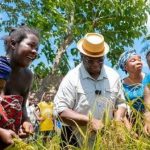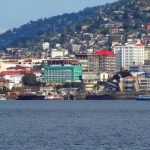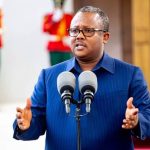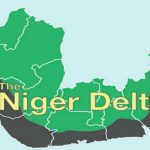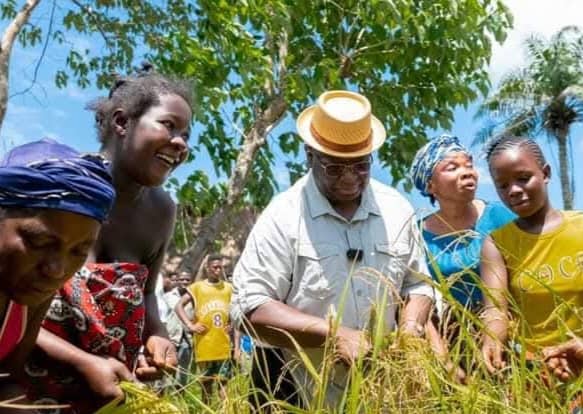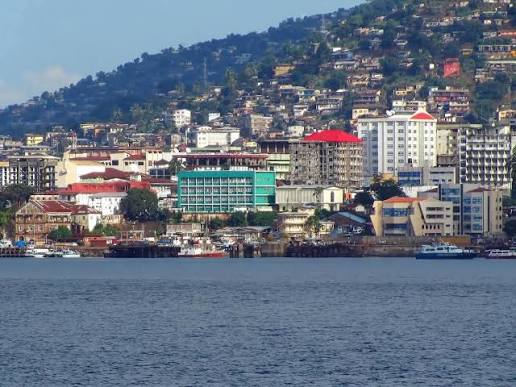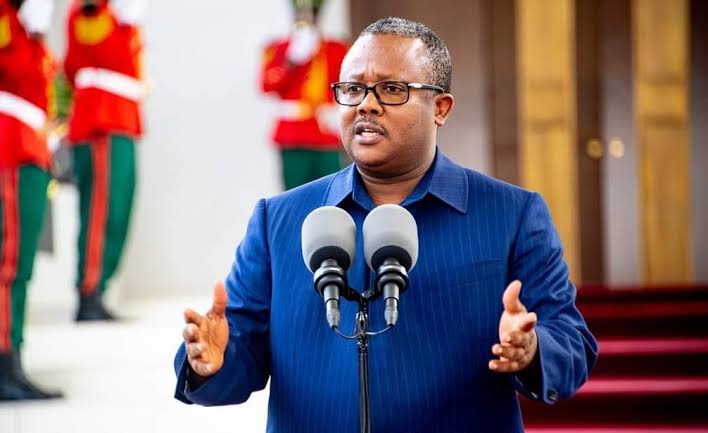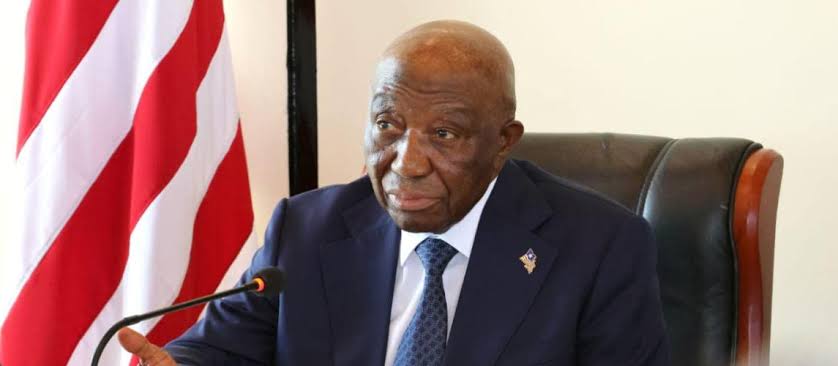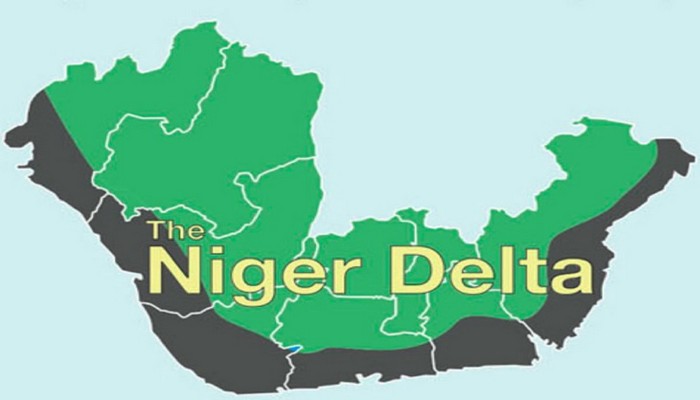The Feed Salone initiative, launched by Sierra Leone’s president, Julius Maada Bio, in 2023, stands as a cornerstone of his government’s strategy to achieve food sovereignty and economic resilience. The government describes it as a flagship program that aims to transform Sierra Leone’s agricultural sector by reducing reliance on food imports as it boosts local production to foster inclusive growth.
The Feed Salone programme was introduced to address Sierra Leone’s long-standing agricultural challenges. Low productivity and import dependency, notably rice, which constitutes 60% of food imports, had stifled the country’s agricultural sector, which was also vulnerable to climate shocks.
According to the official Feed Salone website, the initiative operates through six strategic pillars. These are mechanisation, irrigation, seed and input distribution, extension services, market linkages, and climate resilience. The program’s ultimate goal is to boost GDP growth through agriculture, reduce hunger, create jobs, and enhance export earnings.
Bio’s vision of a self-sufficient “Feed Salone” by 2030 fits in with this. The initiative builds on prior efforts, including partnerships with international organisations like the International Institute of Tropical Agriculture (IITA). A March IITA report highlights Bio’s visit to their Ibadan, Nigeria headquarters, where strategies were discussed to accelerate Feed Salone, drawing inspiration from Ethiopia’s Agricultural Transformation Agency model.
The collaboration between the Sierra Leonean government and IITA highlights the government’s efforts to intoroduce research-driven innovation and public-private partnerships to actualise its objective.
Recent updates appear to show some tangible progress. A post by Bio on October 07 indicates that his Presidential Council on Agriculture reported “significant progress” during a State House meeting. According to Bio, updates at the Presidential Council “clearly show that we are on the right path toward sustainable food production. We are advancing in our Feed Salone Programme. Our policies and reforms have established a strong foundation for a prosperous agricultural sector.”
Supporting data from the Food and Agriculture Organisation (FAO) in 2024 notes that mechanisation efforts have increased by 20% in targeted regions. A Forbes article from November 2024 quoted Agriculture Minister, Henry Musa Kpaka, who highlighted milestones like improved maize yields in Makeni, the main economic hub in the country’s northern province, attributing success to the first anniversary celebrations of Feed Salone planned for late 2024.
The Feed the Future Innovation Lab for Irrigation and Mechanisation Systems (ILIMS) has also contributed, with USAID-funded projects introducing low-cost irrigation technologies. Pilot programs in northern Sierra Leone have reportedly doubled water access for 1,000 hectares, enhancing dry-season farming. These gains, government sources say, correspond with the program’s focus on resilient food systems, which is critical given Sierra Leone’s climate vulnerability.
Even with clear successes, challenges still persist. Some critics say after seven years since Bio’s 2018 election, there are still delays in the implementation of the programme. Economic constraints, including a 2024 inflation rate of 24, according to World Bank figures, limit funding for large-scale mechanisation and input subsidies.
Infrastructure deficits, like poor rural roads and storage facilities, also hinder market access, as noted in the IITA report. Additionally, some reports acknowledge that adoption of new technologies remains low, with only 15% of farmers utilising mechanised tools due to training gaps and cultural resistance. Government sources acknowledge the limitations but insist that they are a natural fallout of a programme started from scratch.
Looking ahead, Feed Salone’s success hinges on addressing these hurdles. The government plans to expand irrigation to 5,000 hectares by 2026, based on ILIMS projections, and increase seed distribution through partnerships with local cooperatives. Minister Kpaka’s call to showcase achievements in the east indicates a push for public engagement.
To sustain momentum, experts recommend increased investment in farmer training, leveraging digital platforms for extension services, and securing international funding beyond USAID. The IITA’s model of adaptable transformation offers a blueprint, but local customization is key. Public skepticism, as seen on X, necessitates transparent reporting—perhaps quarterly updates with data on yields and job creation—to rebuild trust.ConclusionThe Feed Salone initiative represents a bold step toward food sovereignty for Sierra Leone, with early successes in mechanization and irrigation offering hope. However, economic constraints, infrastructural lags, and governance controversies pose significant risks. As of October 2025, the program’s trajectory suggests potential, but its realization by 2030 will require sustained effort, international support, and public buy-in. President Bio’s leadership, as showcased in the recent briefing, will be tested by the ability to turn policy into prosperity for Sierra Leone’s farmers and citizens.

